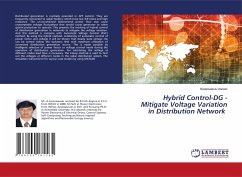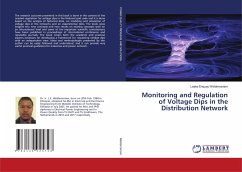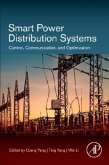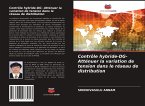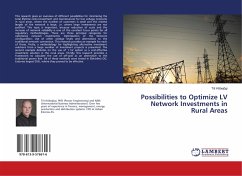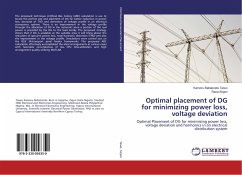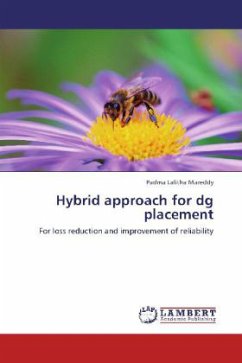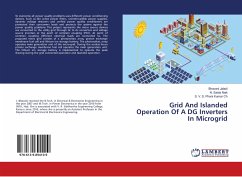Distributed generation is normally operated in APF control. They are frequently connected to radial feeders, which have low X/R ratios and high resistance. The un-constrained bidirectional power flow may cause unacceptable voltage fluctuations that would cause generator or other system protection to operate. This presents the working of hybrid control of distribution generation in networks to mitigate the voltage variation. And this method is compare with Automatic Voltage Control (AVC) method. By using the hybrid method, combining of automatic control of power factor and voltage it will be shown that steady state voltage rise can be control below the statutory limit with maximum utilization of connected distribution generation source. This is made possible by intelligent selection of power factor or voltage control mode during the operation of distribution generation. For calculating the voltage at different nodes load flow is necessary. The Z-loop method is used to find out thevoltages at different nodes in the radial distribution system. The simulation will perform for various case studies by using MATLAB.
Bitte wählen Sie Ihr Anliegen aus.
Rechnungen
Retourenschein anfordern
Bestellstatus
Storno

